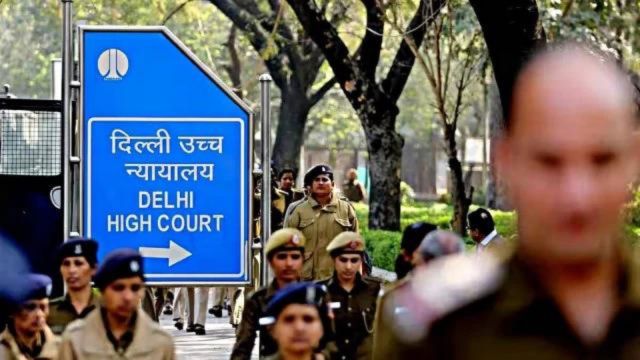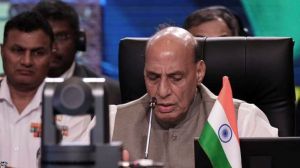Minors must be taught about ‘virtual touch’ to recognise risks in cyberspace: Delhi HC
The Delhi High Court said that besides educating minors about good and bad touch, schools, colleges and other stakeholders should also teach them about the dangers of ‘virtual touch’.
 The court made the observations while refusing to grant bail to a woman accused of helping the main accused, her son, commit sexual assault upon a 16-year-old girl in 2021. (File Photo)
The court made the observations while refusing to grant bail to a woman accused of helping the main accused, her son, commit sexual assault upon a 16-year-old girl in 2021. (File Photo)Apart from the concepts of “good touch” and “bad touch”, minors must be taught the concept of “virtual touch” to enable them to recognise potential risks in cyberspace, the Delhi High Court said on Monday.
“Traditionally, efforts to protect minors from harm have focused on teaching them about ‘good touch’ and ‘bad touch’ in the physical realm. However, in today’s virtual world, it is crucial to extend this education to encompass the concept of ‘Virtual Touch’,” a single-judge bench of Justice Swarana Kanta Sharma said.
“Minors must be equipped with the knowledge and tools to navigate online interactions safely and recognise potential risks lurking in cyberspace. Educating minors about ‘Virtual Touch’ involves teaching them about appropriate online behaviour, recognising warning signs of predatory behaviour, and understanding the importance of privacy settings and online boundaries. Just as children are taught to exercise caution in the physical world, efforts must be made to teach them to develop critical thinking skills to assess the credibility of online contacts and safeguard their personal information,” Justice Sharma said.
Justice Sharma further emphasised that the “need of the hour” is to send a message through the court’s order to the concerned stakeholders – schools, colleges, Delhi State Legal Services Authority and Delhi Judicial Academy – to hold programmes, workshops, and conferences focusing not only on the traditional concepts of good and ‘bad touch’ but also on the “emerging concept” of ‘virtual touch’ and its potential dangers.
“This court, therefore, emphasises that the concerned stakeholders should include in their curriculum apart from the education about good touch and bad touch the virtual touch and its repercussions and danger,” the high court underscored.
The court made the observations while refusing to grant bail to a woman accused of helping the main accused, her son, commit sexual assault upon a 16-year-old girl in 2021. The woman was also accused of “forcing the victim for prostitution, as well as confining her to a room”.
The high court also noted that the case pertained to a situation where a 16-year-old girl was allegedly kidnapped by a “person who she met on a social media application, and kept in a room and was sexually assaulted for around 20-25 days”.
“The narrative of suffering takes a darker turn as she was subsequently coerced into marriage with a 45-year-old man against her will, in exchange for a sum of money,” the order records.
At this stage, the high court observed that in “today’s virtual modern world” where virtual space has also become a ground of “alleged virtual affections between teenagers”, the teenagers are not equipped to deal with the “potential dangers of human trafficking for prostitution” and other crimes which possibly exist therein.







